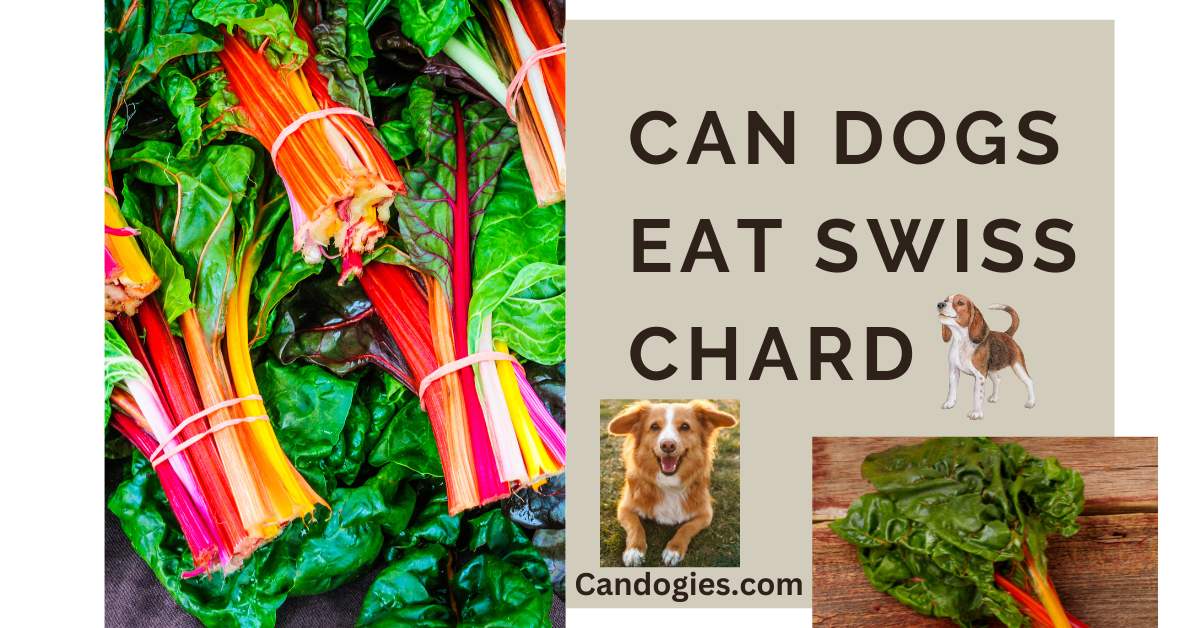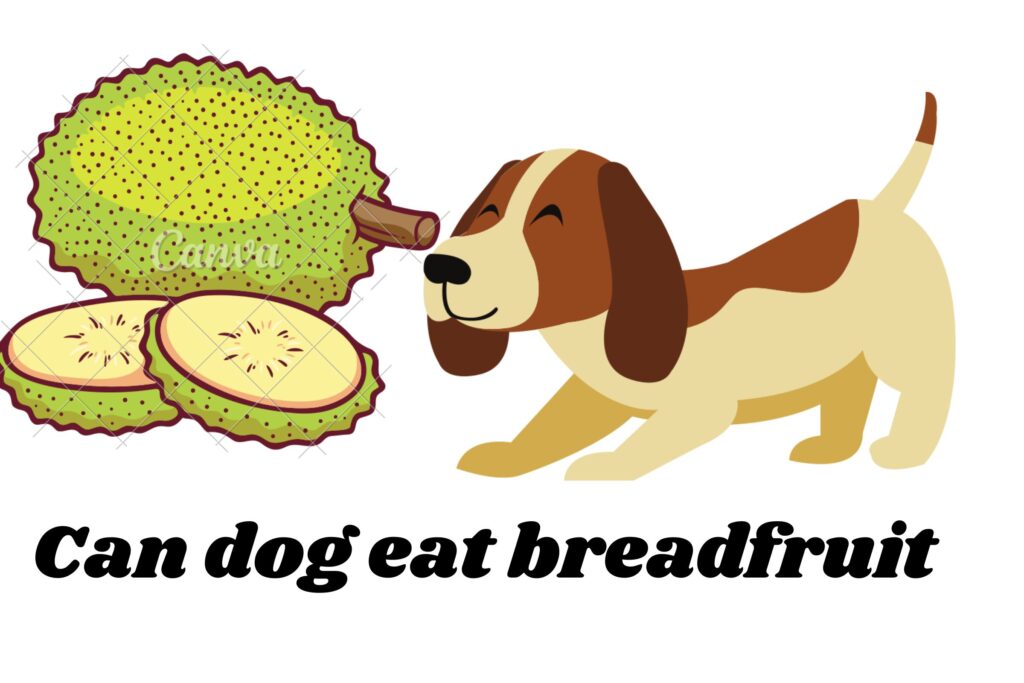Can Dogs Eat Swiss Chard? Risk & Benefits Complete Guide
Swiss chard is a green leafy vegetable related to beets and spinach. Swiss chard is a popular choice for people to eat because of its many health benefits and its brightly colored stems and large, dark green leaves. But when it comes to feeding Swiss chard to dogs, it’s important to think about the risks and rewards. This guide will tell you everything you need to know about whether dogs can eat Swiss chard. What are its risks, and what are its benefits?
What is Swiss Chard?
Swiss chard, also known as Beta vulgaris subsp. Swiss chard, scientifically known as Vulgaris, is a leafy green vegetable belonging to the same family as beets. It boasts large, dark green leaves and stems in various vibrant colors such as red, yellow, orange, or white. Beyond its aesthetic appeal, Swiss chard is incredibly nutritious, offering a range of health benefits. It is good for your health in many ways as it is rich in vitamins A, C, and K and minerals like potassium and magnesium. Swiss chard can be used in many different ways in cooking because of its mild and slightly earthy flavor. Swiss chard is a delicious and healthy food that can be added to any meal. It can be eaten raw in salads or cooked into stir-fries and soups.

Can Dogs Eat Swiss Chard?
Dogs may or may not eat Swiss chard, so it’s best to be careful. Swiss chard is generally safe for human consumption and has many health benefits. But dogs may not be able to eat it. that Swiss chard leaves contain oxalates. Which can cause kidney or bladder stones in dogs. Especially those who often have urinary tract problems. Some dogs’ stomachs can also be sensitive. Which can make them sick eating new things like Swiss chard. Is Swiss chard safe, or are there other greens that would be better?
How Often Can Dogs Eat Swiss Chard?
How often a dog can safely eat Swiss chard depends on its health. Swiss chard can be good for a dog’s health in some ways. But it should be given in small amounts and as part of a balanced diet. How often and how much Swiss chard should a dog eat?
Generally, give your dog Swiss chard slowly and see how he reacts. Start with a small amount and watch for any stomach problems or allergic reactions. If your dog does well with Swiss chard, you can add it to their diet from time to time.
| Dog’s Size | Frequency of Feeding Swiss Chard |
|---|---|
| Small Breed (e.g., Chihuahua, Pomeranian) | Occasional Treat or Supplement to Meals |
| Medium Breed (e.g., Cocker Spaniel, Border Collie) | 1-2 times per week |
| Large Breed (e.g., Labrador Retriever, German Shepherd) | 2-3 times per week |
| Giant Breed (e.g., Great Dane, Saint Bernard) | 2-3 times per week |
The Benefits and Risks of Swiss Chard for Dogs?
Here’s a table summarizing the benefits and risks of Swiss chard for dogs:
| Benefits | Risks |
|---|---|
| Rich in vitamins A, C, and K, supporting immune function | Oxalates in Swiss chard leaves can contribute to the formation of kidney or bladder stones in some dogs |
| Good source of minerals like potassium and magnesium | Some dogs may have sensitive stomachs and experience digestive upset after consuming Swiss chard |
| High in dietary fiber, aiding digestion and bowel health | Allergic reactions may occur in rare cases |
| Low in calories, suitable for weight management |
How to Give Chard to My Dog?
To give Swiss chard to your dog, follow these steps:
- Wash Swiss chard well and remove any tough stems or damaged leaves.
- Roast or steam Swiss chard for easy digestion.
- Avoid using spices or additives that may be harmful to dogs.
- Start by introducing a little cooked Swiss chard into the dog’s food.
- Monitor your dog’s reaction for any digestive problems or allergic reactions.
- Gradually increase the serving size if your dog tolerates it well.
Swiss Chard Feeding Chart According To Size
Here’s a Swiss chard feeding chart according to dog size:
| Dog Size | Serving Size |
|---|---|
| Small (up to 20 lbs) | 1-2 tablespoons |
| Medium (20-50 lbs) | 2-4 tablespoons |
| Large (50-80 lbs) | 4-6 tablespoons |
| Extra Large (80+ lbs) | 6-8 tablespoons |
Swiss Chard Feeding Chart According To Age
Here’s a Swiss chard feeding chart according to dog age:
| Dog Age | Serving Size |
|---|---|
| Puppy (2-6 months) | Small introductory amounts, gradually increasing as tolerated |
| Puppy (6-12 months) | 1-2 tablespoons |
| Adult (1-7 years) | 2-4 tablespoons |
| Senior (7+ years) | 2-4 tablespoons |
Is Raw Chard Bitter?
Yes, it can taste a bit bitter when raw. Chard can be painful in different ways. Based on how fresh the leaves are. Some people like the slightly bitter taste of raw chard in salads or other dishes, while others like to cook it to make the flavor milder. If you don’t like how bitter raw chard is. So you can try blanching or lightly cooking it. It can remove some of the bitterness while retaining the health benefits.
Can Dogs Eat Swiss Chard Leaves?
Yes, dogs can eat Swiss chard leaves. But they should do it only in small quantities and with some care. Swiss chard leaves are generally safe for dogs to eat. But some dogs may be sensitive or allergic to plants. Leafy vegetables. Also, Swiss chard leaves contain oxalates. Which in large amounts can cause kidney or bladder stones in some dogs. It’s best to introduce your dog to new foods slowly and see how he reacts.

Can Puppies Eat Swiss Chard?
Swiss chard can be given to puppies. But it should be done slowly and in small amounts. Swiss chard is a good dog food because it is rich in vitamins and minerals. But dogs’ stomachs are sensitive. So giving them new things too soon or in large amounts can upset their stomachs. Before giving your dog Swiss chard or fresh food, always talk to a vet. They can give you specific advice based on the dog’s size, breed, and individual needs.
Can Dogs Eat Cooked Swiss Chard?
Swiss chard can be cooked and fed to dogs. Cooking Swiss chard can make it easier for dogs to digest and help break down some of the natural compounds in the veggie. Swiss chard that has been cooked can be a healthier part of your dog’s diet because it retains many of its nutrients while being more palatable. But it is important not to add salt, garlic, or onion, which can be bad for dogs. Or any other spice that can be bad for dogs. Also, you should always introduce new foods to your dog slowly and see how they react to make sure they can handle cooked Swiss chard well.
Swiss Chard Toxic to Dogs?
Most of the time, Swiss chard is not dangerous to dogs. But there are some things to keep in mind. Swiss chard leaves contain oxalates. In excess, some dogs, especially those with urinary tract problems. May have kidney or bladder stones. Some dogs may be sensitive or allergic to Swiss chard or other leafy greens. You give your dog Swiss chard slowly and see how he reacts. It is best to stop eating Swiss chard if you experience symptoms of stomach problems or allergic reactions.
Conclusion: Can Dogs Eat Swiss Chard? Risk & Benefits Complete Guide
Swiss chard can be a healthy part of a dog’s diet if given in small amounts and with the right precautions. However, it is not usually harmful to dogs. But it contains oxalates, which can cause kidney or bladder stones in some dogs. Some dogs may also have a reaction or allergy to it. Therefore, it’s important to introduce Swiss chard slowly, monitor how your dog reacts, and talk to a vet if you have any concerns. By thinking about your dog’s health and seeking advice from a professional, you can decide if Swiss chard is good and safe for your dog.
FAQ’s
Swiss chard may not be suitable for all dogs, especially those with a history of urinary tract problems or allergies. To determine if Swiss chard is ideal for your dog’s nutritional needs.
Yes, dogs can eat Swiss chard stems. The stems are edible and contain the same nutrients as the leaves. However, it is important to ensure that stems are cooked and served in moderation.
Yes, you can add Swiss chard to your dog’s regular food as a healthy addition. However, ensure the overall diet is balanced and meets your dog’s nutritional needs.
Senior dogs can usually eat Swiss chard if it is well tolerated and meets their nutritional needs. However, to ensure that it is tailored to their specific health conditions and any nutritional requirements related to age.
Although Swiss chard can be a nutritious addition to a dog’s diet, it is generally recommended to be fed in moderation. The frequency of feeding Swiss chard will depend on your dog’s individual needs and tolerance.
Dogs with known allergies or sensitivities to leafy greens should be closely monitored when introduced to Swiss chard. Find out if Swiss chard is safe for your dog with allergies or if there are alternative greens.







